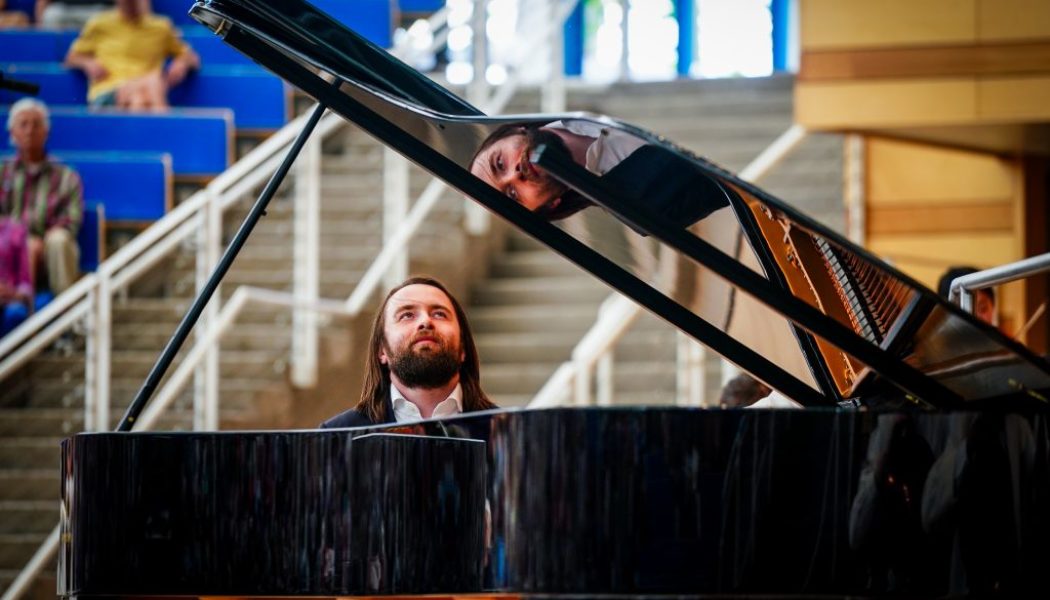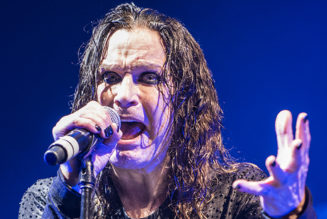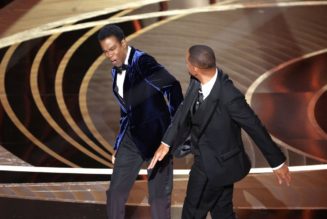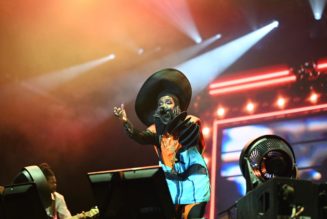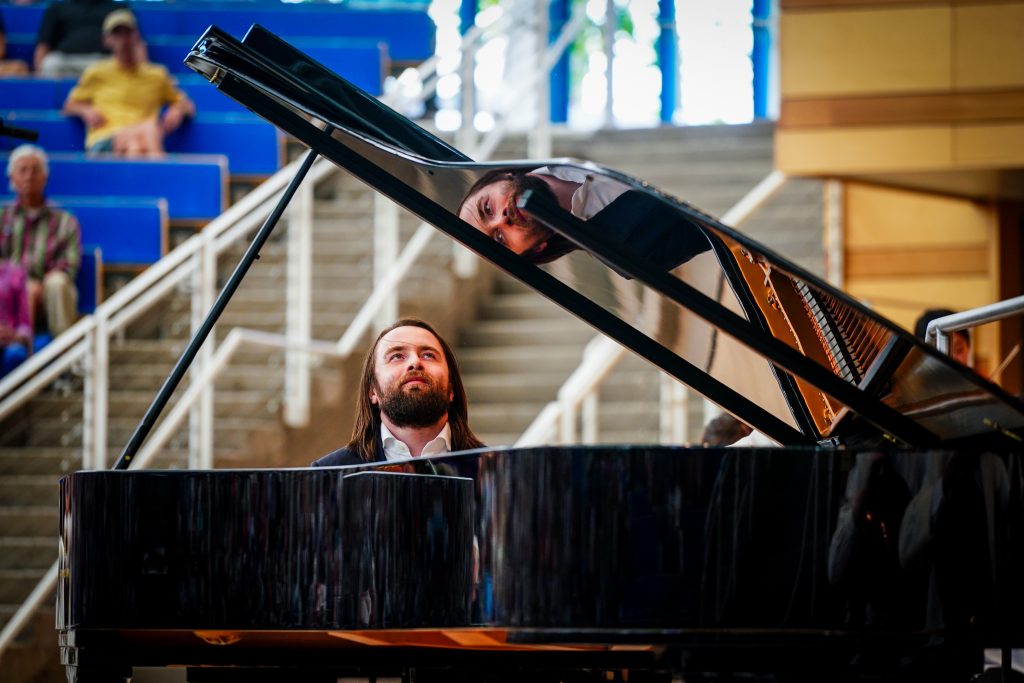
Diego Redel/Courtesy photo
Opening weekend for the Aspen Music Festival leaned heavily into this year’s theme, “Adoration of the Earth,” from Sea Interludes to the Rite of Spring. The most musically compelling aspect, though, was a chance to compare and contrast piano soloists such as the fiery Daniil Trifonov, the elegant Joyce Yang and the mercurial Alexander Malofeev.
That’s the Aspen festival in a nutshell for audiences, eight weeks of programming that centers on four ad hoc orchestras and a lineup of visiting soloists that venture into the Rocky Mountains to make music, often at as a high level as the alpine setting at nearly 8,000 feet. Some 400 young music students sit in the orchestras alongside principals from major philharmonic and chamber music ensembles.
Meant to focus on how music expresses our human relationship with nature, the theme title comes directly from Part One of Stravinsky’s Rite of Spring, which capped off the Aspen Festival Orchestra’s first program Sunday. But not before Trifonov, in the most jaw-dropping performance, applied impeccable technique to Gershwin’s Concerto in F.
This concerto was a late change for the scheduled Prokofiev’s Concerto No.3 so Trifonov could get in a few live performances before recording the Gershwin with the Philadelphia Orchestra in September. If this was his first go-through, the mind reels at how good it might get by then. Gershwin’s sly swing, his ripples of decoration as the music develops, perky rhythms and supple tunes all emerged with fluidity and personality. If the conductor, the festival’s music director Robert Spano, too often allowed the outsized orchestra to overwhelm the piano, what we heard from the soloist was absolutely mesmerizing.
(Even better was the encore, Debussy’s “Reflections of water,” which he began almost as if it were an extension of Gershwin’s style, and created five minutes of bliss.)
The big-boned performance of the Rite of Spring that followed was notable for a sinuous opening by bassoonist Daniel Matsukawa (principal bassoon of the Philadelphia Orchestra) and magnificent work from timpanists Edward Stephan (San Francisco Symphony) and Sean Swenson, his student at San Francisco Conservatory and here in Aspen. The overall pace was great, even if subtleties were missing.
The opener, Brian Raphael Nabors’ “Of Earth and Sky: Tales from the Motherland,” used African musical tropes, creative orchestration and driving rhythms to create what the composer described as an imaginary world.
in the first orchestral program of the weekend Friday the Aspen Chamber Orchestra, under the baton of Jane Glover, a regular visitor to Aspen, made the Sea Interludes into vivid scene-painting and the “Pastoral” Symphony made its points with finesse and a sense of balance between rhythmic vitality and tonal color.
For her part, Yang brought a sort of soulful refinement to Mozart’s Piano Concerto No. 24 in C minor, making it the jewel of Friday’s program. With impeccable control of tempo, pace and touch, and with sensitive and energetic conducting by Glover, Mozart emerged with a sense of unanimity and flair. This was not show-off stuff, but a heartfelt evocation of one of the great concertos in the repertoire.
Opening night Thursday presented pianist Alexander Malofeev in an uneven but captivating recital in Harris Hall. The 21-year-old Russian’s command of the instrument was impressive throughout, even if he fared better in works by Russian composers than with Liszt or Beethoven.
He got off to an unfocused start with an interpretation of Beethoven’s Piano Sonata No. 17 in D minor that blurred edges of the composer’s clarity, but the next few pieces (played without a break) conjured up a lovely realm of serenity and soulfulness at their best. Skyiabin’s Prelude and Nocturne for the Left Hand unfolded with unhurried lyricism and suppleness. Liszt’s transcription of Wagner’s Overture to Tannhäuser suspended time nicely in the opening hymn, and gradually built to a crashing finish. If some of the details of Wagner’s complexity fell by the wayside, it was clear that Malofeev’s intent was to bring out pianistic elements of the writing rather than a faithful version of the busy orchestral original.
Best of all was the concluding set of Rachmaninoff preludes, starting with the Elegie in E-flat minor (which carried hints of the Skryabin piece and the Liszt in its stately opening measures), leading to an effectively straightforward Prelude in C-sharp minor (perhaps the composer’s best known music). The eight short episodes of the Études Tableaux Op.33 each told their stories with color and precision, and the pianist nicely emphasized the final gestures that echoed similar chords in the famous prelude. The charming encore was the same composer’s Lilacs.
As if Trifonov, Yang and Malofeev weren’t enough for piano fans, there was more to appreciate in Saturday afternoon’s chamber music program and the evening’s recital by soprano Ana María Martînez.
Malofeev returned to play Dvořák’s rarely heard Piano Quintet No. 1 in A major in a marvelously happy performance with violinists Kathleen Winkler and Jinu Suk, violist James Dunham and cellist Eric Kim. The pianist proved a worthy colleague in these sorts of ensembles. Later in the program Anton Nel demonstrated why he’s in demand for chamber music with faculty here, providing plush textures for a salon-like Romance that featured faculty violinists Naoko Tanaka, Renata Arado, Bing Wang and Cornelia Heard, and teamed with pianist Cameron Stowe for Debussy’s two-piano version of Schumann’s Six Studies in Canon Form. The final Adagio was especially fine.
In Martínez’s all-Spanish recital Myra Huang, director of musical administration and head coach for the Aspen Opera Theater and VocalARTS program, flexed her pianistic muscles (and tremendous stamina) as the accompanist. Martínez applied a hefty but flexible soprano to Turina’s Poema en forma de canciones and Falla’s Siete canciones popolares españolas, then teamed with four highly talented Hispanic students in the opera program for a series of zesty solos and duets from zarzuelas (Spanish light opera).
Standout moments included dramatic tenor César Andrés Parreño’s ‘Non puede ser’ from Zábal’s La tabernera del puerto and soprano Kesley Figueroa’s duet with Martínez. ‘Todas las mañanitas’ from Panella Moreno’s Don Gil de Alcalá intertwined Figueroa’s and Maertínez’s gorgeous and complementary voices. Parreños and Figueroa wrapped up the concert with a full-power ‘Torero quiero se’ from Panella Moreno’s El gato montiés.
